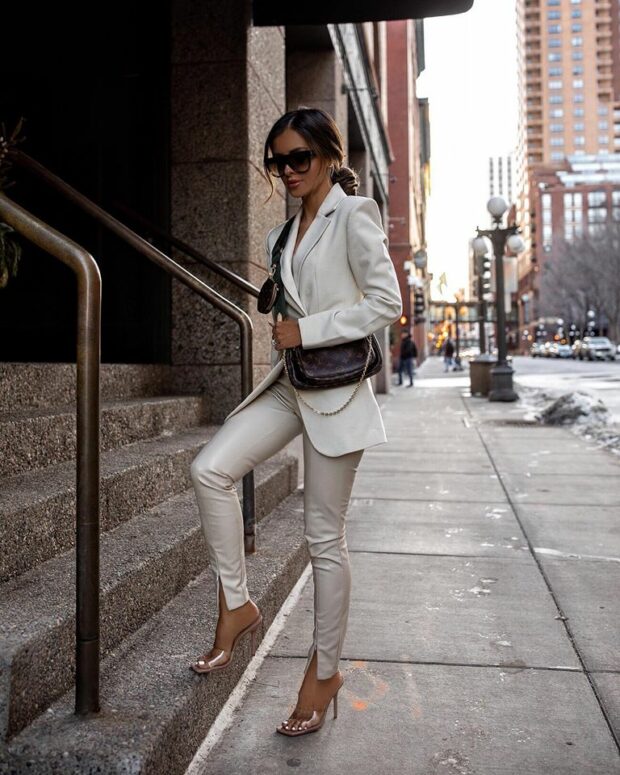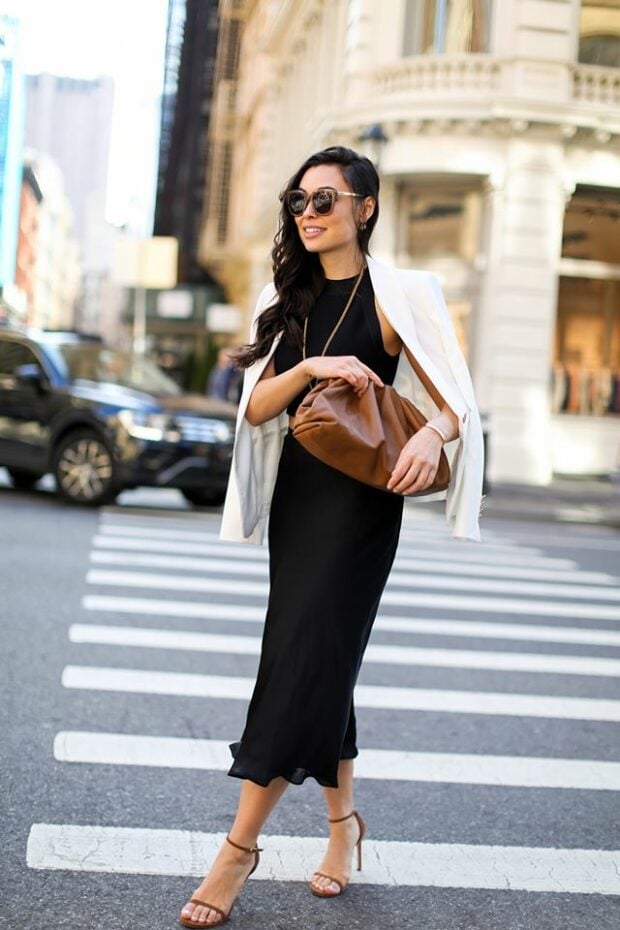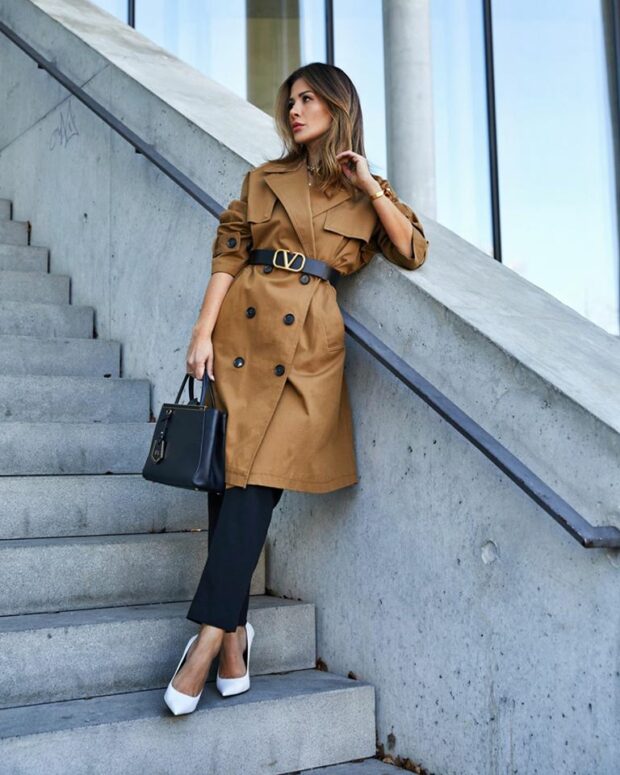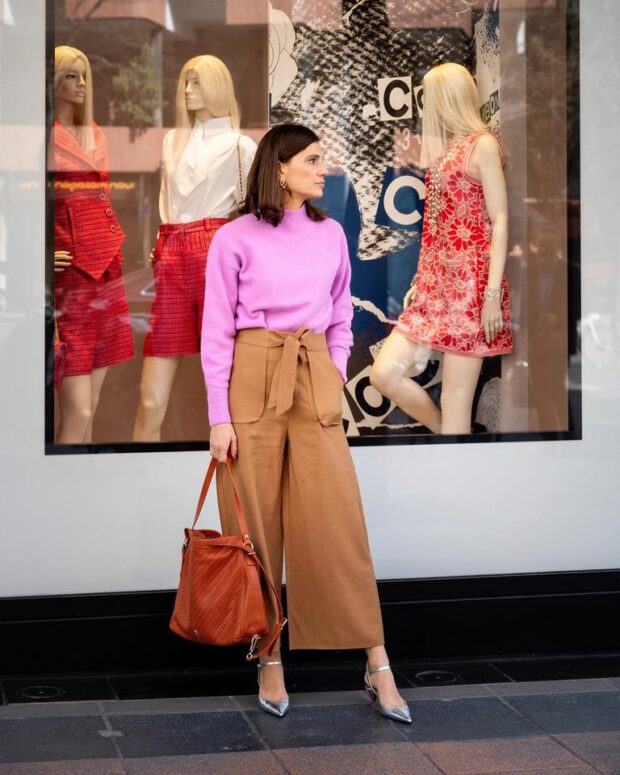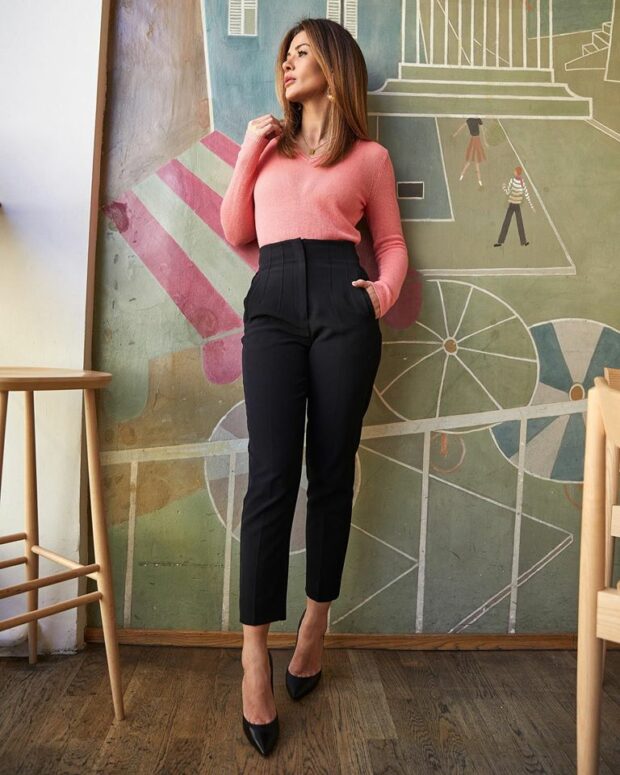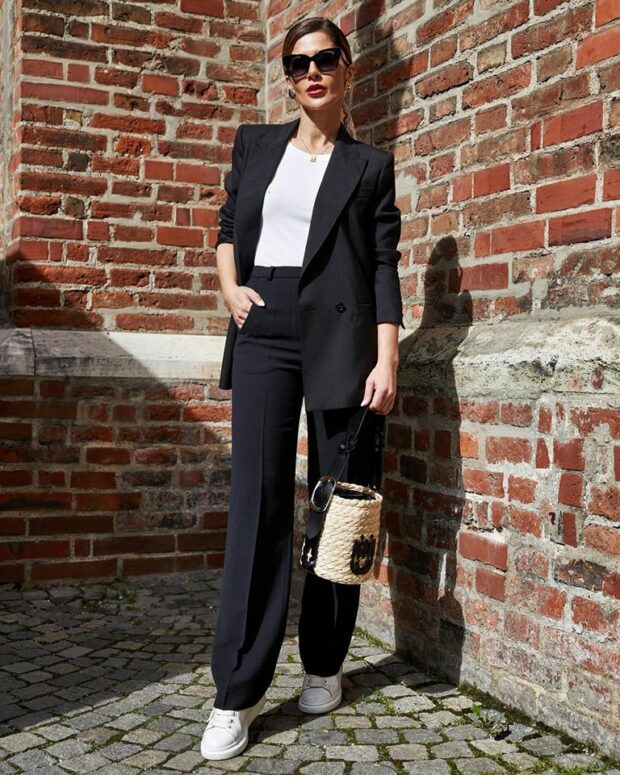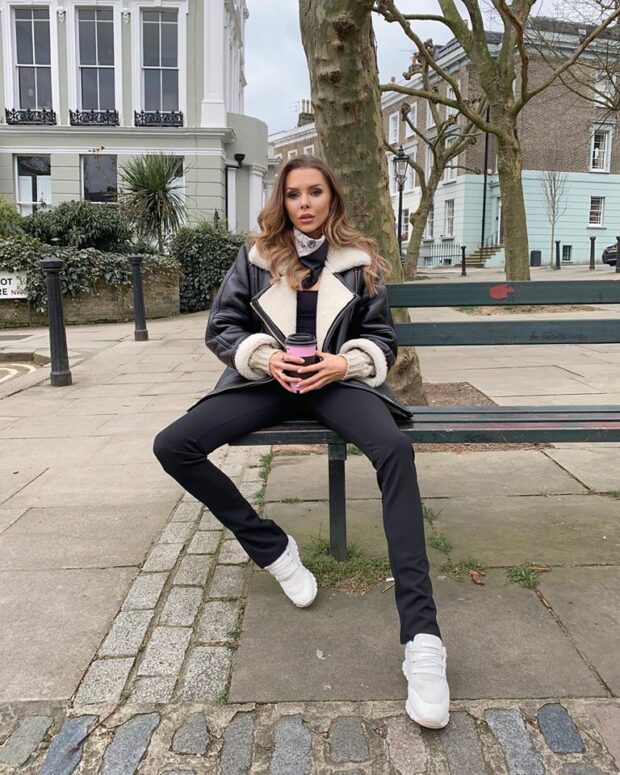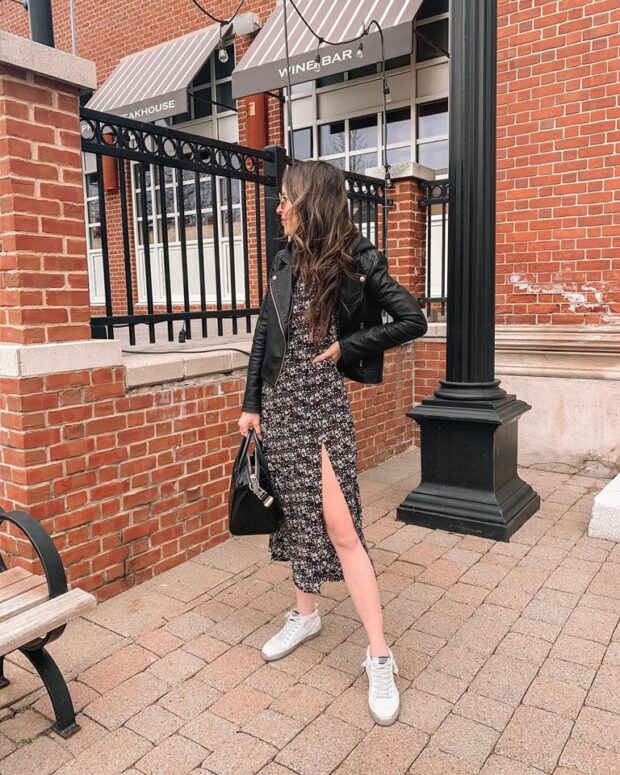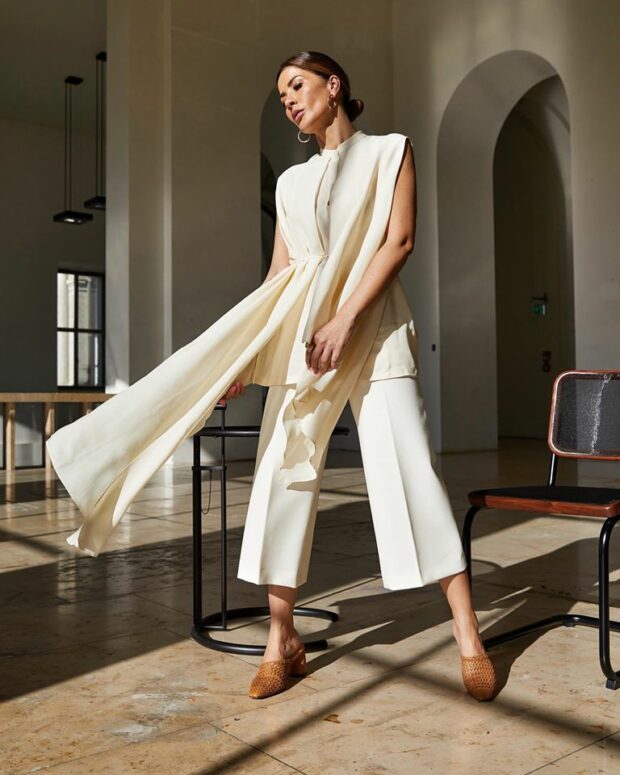Tuesday, March 31, 2020
Great Outfits in Fashion History: Tessa Thompson in Voluminous Valentino
Great Outfits in Fashion History: Tessa Thompson in Voluminous Valentino posted first on http://fashionista.com
Must Read: Vestiaire Collective Launches Celebrity Sale, Alex Morgan Graces 'Glamour' Digital Cover
Must Read: Vestiaire Collective Launches Celebrity Sale, Alex Morgan Graces 'Glamour' Digital Cover posted first on http://fashionista.com
Fashionista Beauty Helpline: How Can I Groom My Own Eyebrows In-Between Appointments?
Fashionista Beauty Helpline: How Can I Groom My Own Eyebrows In-Between Appointments? posted first on http://fashionista.com
Social Distancing Has Damn-Near Cured Me of My Vanity
Social Distancing Has Damn-Near Cured Me of My Vanity posted first on http://fashionista.com
In a Social Distancing Climate, Traditional Bridal Shopping Is Going Virtual
In a Social Distancing Climate, Traditional Bridal Shopping Is Going Virtual posted first on http://fashionista.com
The 26 Best Beauty Products Fashionista Editors Discovered in March
The 26 Best Beauty Products Fashionista Editors Discovered in March posted first on http://fashionista.com
Monday, March 30, 2020
Amazing Baggy Jeans Outfit Ideas
The fashion crowd is obsessed with baggy jeans. Everyone loves them because they are so comfortable and stylish at the same time and they go well with everything. In the photos below you will find example from our favorite fashion bloggers for how to style your baggy jeans and look stylish and chic in the upcoming season.
The post Amazing Baggy Jeans Outfit Ideas appeared first on Style Motivation.
Amazing Baggy Jeans Outfit Ideas posted first on http://www.stylemotivation.com
These Brands Are Giving Away Product to Medical Professionals at the Front Lines of the Pandemic
These Brands Are Giving Away Product to Medical Professionals at the Front Lines of the Pandemic posted first on http://fashionista.com
Great Outfits in Fashion History: Chloë Sevigny in Denim Cutoffs at the 2016 Cannes Film Festival
Great Outfits in Fashion History: Chloë Sevigny in Denim Cutoffs at the 2016 Cannes Film Festival posted first on http://fashionista.com
Why Is This Picture of Anna Wintour Wearing Jeans so Comforting?
Why Is This Picture of Anna Wintour Wearing Jeans so Comforting? posted first on http://fashionista.com
Must Read: CFDA Cancels Resort Shows & Postpones Men's Shows, How Newly Launched Brands are Faring
Must Read: CFDA Cancels Resort Shows & Postpones Men's Shows, How Newly Launched Brands are Faring posted first on http://fashionista.com
How Bad Is a Pandemic for Small Retailers — and Can They Bounce Back?
How Bad Is a Pandemic for Small Retailers — and Can They Bounce Back? posted first on http://fashionista.com
19 Trenches to Help You Channel Your 'High Fidelity' Style
19 Trenches to Help You Channel Your 'High Fidelity' Style posted first on http://fashionista.com
Sunscreen Sales Are Declining During the Coronavirus Pandemic — But Experts Say It's Crucial to Keep Wearing SPF Right Now
Sunscreen Sales Are Declining During the Coronavirus Pandemic — But Experts Say It's Crucial to Keep Wearing SPF Right Now posted first on http://fashionista.com
The 12 Best Liquid Eye Shadows, According to Makeup Artists
The 12 Best Liquid Eye Shadows, According to Makeup Artists posted first on http://fashionista.com
The 26 Best Things Fashionista Editors Bought in March
The 26 Best Things Fashionista Editors Bought in March posted first on http://fashionista.com
Sunday, March 29, 2020
Spring Fashion Inspiration: 15 Ways to Wear a Blazer This Spring
Spring is here and it’s time to start transitioning that wardrobe of yours into the warmer weather season. Blazers are a spring essential that will never go out of style. Our favorite fashion bloggers have already begun wearing the blazer in ways that make us want to stock up—immediately. And it has to be said that after looking to them for outfit inspiration, we’re having a hard time envisioning springtime looks that don’t involve the spring wardrobe essential.
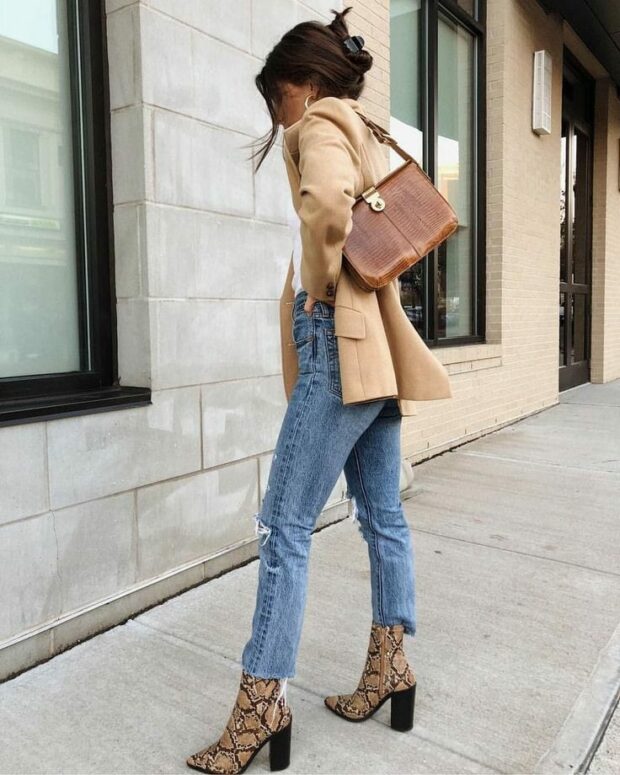
The post Spring Fashion Inspiration: 15 Ways to Wear a Blazer This Spring appeared first on Style Motivation.
Spring Fashion Inspiration: 15 Ways to Wear a Blazer This Spring posted first on http://www.stylemotivation.com
15 Spring Work Outfit Ideas for Any Type of Office
New fashion season is here, which means that we must prepare our Spring office outfits. Update your office look with our roundup of chic outfit formulas for spring and beyond. A welcome change in season calls for a lighter and brighter work wardrobe. And it’s amazing how a few key pieces can prompt a fresh, new outlook and a jolt of creativity at the office. Take a look at the following photos and find inspiration for your perfect Spring office outfits.
The post 15 Spring Work Outfit Ideas for Any Type of Office appeared first on Style Motivation.
15 Spring Work Outfit Ideas for Any Type of Office posted first on http://www.stylemotivation.com
Casual Spring Outfit Ideas with Sneakers
We all love wearing sneakers in Spring and they are perfect for every casual Spring outfit. In the following photos we are presenting you a few amazing outfit ideas with sneakers from our favorite fashion bloggers. You can use them as inspiration for creating your perfect casual Spring look with sneakers.

The post Casual Spring Outfit Ideas with Sneakers appeared first on Style Motivation.
Casual Spring Outfit Ideas with Sneakers posted first on http://www.stylemotivation.com
Don’t Get Victimized Twice: Tips for Negotiating a Car Accident Settlement
Car accidents happen. And while most collisions leave nothing more than small scrapes and dents, other accidents can produce significant damage. This includes vehicular damage and personal injuries.
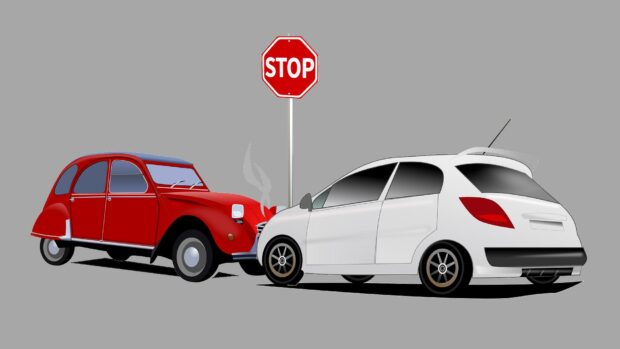
If you find yourself in a situation where you’ve been hurt in a car accident, you need to act quickly. Otherwise, the car insurance company will take advantage of your situation and minimize your claim amount.
6 Tips for Negotiating Your Settlement
There are really six main causes of car accidents: speeding, distractions, alcohol/drug consumption, fatigue, bad weather, and manmade hazards. Depending on the situation, collisions can range from minor and insignificant to serious and deadly. And while you may think the insurance companies are on your side, they really only care about their own bottom lines.
Insurance companies are for-profit businesses and they’ll do anything they can to minimize payouts and pad their revenue sheets – even if that means treating their clients as cheap tokens.
Here are some ways you can negotiate with them and obtain a larger, fairer settlement in the wake of an accident:
1. Gather All Evidence
According to a well-respected car accident lawyer in Chicago, the success of your case will hinge on the strength of your evidence. Insurance companies won’t treat hearsay and subjective details kindly. You need cold, hard facts that you can use to build the foundation of your case.
The best time to begin gathering evidence is at the accident scene. Take pictures, jot down notes, grab information from observers, etc. There’s no such thing as having too much evidence. You can always toss some of it out. It’s hard to go back and get more after the fact.
2. Don’t Delay
Don’t wait to contact your insurance company and get your claim rolling. Initiate your claim as soon as possible after the accident occurs. This allows you to get the claim on file while your mind is still fresh. (It also prevents any issues where the insurance company could claim you didn’t contact them in a timely manner.)
3. Avoid Making Admissions
Everything you say can and will be used against you by the insurance company. That’s why it’s important to only provide the facts. Likewise, you should avoid making any admissions that could possibly be used to lower your settlement value.
Something as simple as apologizing or saying you’re fine could come back to bite you. Stay alert and use matter-of-fact responses. If you’re unsure of whether you should say something, speak to an attorney.
4. Hire an Attorney
Speaking of attorneys, it’s a good idea to hire one. Most work on contingencies, which means they only charge you fees if they win your case. This makes it an affordable, no-brainer option. The service they provide you will be invaluable and irreplaceable.
When searching for the right attorney, look for someone who is experienced and who specializes in personal injury law and/or car accidents. You should also read reviews and testimonials online. This helps ensure you get the expertise and focus needed to win your settlement.
5. Don’t Accept the First Offer
The insurance company is going to bring you a ridiculously low offer the first time around. It might even be worth just 10 or 15 percent of the value they’re actually willing to pay. Don’t give in!
Despite what the insurance company tells you, there’s always room for negotiation. Consult with your attorney before you consider accepting a figure.
6. Practice Patience and Persistence
Car accident settlements can be long and drawn out. Serious ones can even take years to unfold. It’s important that you practice patience while remaining persistent. Your lawyer can help you walk this fine line.
Stay Focused and Committed
Car insurance companies have dozens of tactics up their sleeves, but one of their favorites is to prolong settlement claims and exhaust accident victims. They want to make the process so frustrating and mind-numbing that you eventually scream, “Uncle!”
If you want to get the fair settlement that you deserve, you need to stay focused and committed to the task at hand. Hopefully, this article has given you some tangible advice that you can act upon to increase your chances of getting a fair and just payout.
The post Don’t Get Victimized Twice: Tips for Negotiating a Car Accident Settlement appeared first on Style Motivation.
Don’t Get Victimized Twice: Tips for Negotiating a Car Accident Settlement posted first on http://www.stylemotivation.com
What’s the Difference Between Coffee and Espresso?
Since the discovery of coffee, we have seen the introduction of different coffee beverages. All these differences come up so that coffee fans and enthusiasts can enjoy all the benefits that coffee has to offer in different states.
Beginners often wonder what the difference between coffee and espresso is. Yes, they come from the same ingredients, that is, water, coffee beans, and sometimes milk, but what makes up the differences.
In this article, our main agenda is to differentiate both drinks. The next time you go to a fancy restaurant or for a coffee date, you will be able to demystify the differences without any problems.

The type of coffee beans you need
The first thing to understand is that espresso is nothing short of coffee. You require coffee beans and hot water to brew the drink.
People make a mistake when they say that the coffee beans used to make espresso are different from the ones used to make regular coffee. Well, that is not so because you can use the same coffee bean brand and type to make both drinks.
Nevertheless, finely grounded coffee beans are the best for espresso, while medium or coarse grains are the perfect option for preparing coffee – whether commercially or at home. Brands that sell coffee, nowadays, will indicate what their coffee can do.
Choosing between Arabica and Robusta
Although many people say that Arabica is the best for espresso, both Arabica and Robusta can do the same job. These two coffee bean types have their individual qualities, which they bring to your drink when you blend them or when you take them individually. In fact, both of them demand a particular environment, which dictates the quality they will bring to your espresso or coffee.
Therefore, as you select, go for your preference. Get to compare between coffee beans brands to see the best one for you. Otherwise, the thought of one being better than the other is misleading.
Roasting levels for both drinks
If you want to taste the full potential of your brew, you need to roast your coffee beans. You can use several methods to roast coffee beans.
For those that want to make espresso, roast your beans to a dark roast level. Dark roasting allows the grain to remove all the moisture that can hinder the taste, flavor, and aroma that your espresso should have.
When roasting beans for preparing the regular coffee, you do not need an extremely dark roast. A medium one, in this case, will do. Note that you are free to roast it to whichever level you would like.
Gadgets used to make both drinks
Primarily, to make a shot of espresso, pressure, and heat is necessary. A pressure filter releases water droplets that meet the fine-grounded coffee. The force involved allows the beans to release their natural oils, flavors, acidity, and the aroma found within the seed. That is another reason why you need to choose the best coffee beans in the market.
For you to achieve this, you will require an espresso machine. Though many people think that you need thousands of dollars to buy one, it is not so, necessarily. You can buy a straightforward device that will solve your espresso making needs.
An espresso machine can also make coffee. However, you will require coarse coffee beans instead of the little ones. Using the fine ones to make coffee will only produce a bitter taste, which the espresso would be able to eliminate.
Note also that coffee makers can make a superb cup of coffee. On the other hand, these devices cannot make espresso drinks because they do not operate by pressure; instead, they pre-heat water present in a water reservoir, then it meets with coarsely grounded coffee, and that is it.
How both drinks look
Now, even though both the espresso and coffee from the same place, they do not resemble. All of them have different qualities in terms of taste and aroma. The espresso, for instance, has a crema that forms on top, the sweet spot at the middle, and the bitter section at the very bottom.
Some coffee enthusiasts remove the crema, especially if they do not want to experience the acidic parts of the beverage. You can do so by stirring slightly.
Coffee, on the other hand, is a simple drink. Since it is heated water meeting with the coffee, it develops consistency in what you get afterward.
Serving both drinks
There is nothing special about serving coffee. You can either choose to drink from a large or small mug. For espressos, it is different.
Baristas serve these drinks in small cups and water. The water helps you clean your palate before you consume it. While you can take the espresso like a shot, sometimes, it is not necessary. Take small sips so that you can experience the beverage better.
You can go for either single shots or double shots. Experts encourage people to for the double shots, nonetheless.
Amount of caffeine intake
While the espresso may seem to have more caffeine intake, both coffee and espresso may have high caffeine intake. The difference comes from the type of coffee beans that you use. Robusta, generally, has a higher caffeine percentage than Arabica.
Regardless of how useful this chemical compound is, it would help if you consumed it responsibly. Excess amounts can cause insomnia, anxiety, and hypersensitivity.
Conclusion
From the article, we can see that both espressos and coffee have differences. The main difference, though, appears in the way you prepare both drinks. Besides that, we also understand that as much as both of them have different preparation methods, they have the same ingredients. Thus, when choosing the right coffee beans, ensure that you select the best one for the kind of drink you want to prepare.
The post What’s the Difference Between Coffee and Espresso? appeared first on Style Motivation.
What’s the Difference Between Coffee and Espresso? posted first on http://www.stylemotivation.com
How to Use Storytelling to Boost Any Presentation
Making a presentation can be both stressful and intimidating. Whether you’re pitching a business, showcasing a design, or just reporting on your progress, you’ll be responsible for informing, persuading, and possibly entertaining an audience.

One of the best approaches you can take is the use of storytelling. For example, if you’re showing off a new architectural design, it’s not enough to merely showcase the structure of the building; it’s on you to create a narrative that brings story, emotion, and life to your work.
But how can you effectively do this?
Why Storytelling Is Important
Storytelling is essential to the human experience, and remains one of our most powerful communicative tools. Telling a story, rather than making a bland, empty presentation, will help you in a few key ways:
- Emotional payoff. It would be hard to emotionally connect with a brick wall. But what if you learned that wall survived bombings from multiple different wars? What if you knew that wall was part of a building where a famous historical figure was born? What if you then learned the wall was about to be torn down? All of a sudden, that wall has more meaning—and you can use that narrative context to inspire emotion in your audience.
- Audience engagement. Stories are also more engaging. It’s why the most popular movies at the box office are the ones that tell a cohesive story that includes a beginning, middle, and end, and not ones with a mosaic of loosely interconnected scenes. If you frame your presentation as a story, your audience will stay with you to see the conclusion—and they’ll have a sense for why you’re presenting what you are.
- Memorability. Finally, stories make your information more memorable to an audience. People are bad at memorizing specific facts, dates, and other discrete pieces of information, but are good at remembering general stories, moods, and directions. It’s why competitive memorizers use a “memory palace” to build a framework for otherwise contextless information, like the order of a shuffled deck of cards.
Integrating More Storytelling
If you’re giving a presentation about the life and death of a specific person, the story’s already told for you; you won’t have to do much to integrate storytelling into your presentation. But if you’re delivering something more abstract, you’ll have to go out of your way to find a narrative arc.
Consider these approaches.
- Have a beginning, middle, and end. Every story should have some kind of basis with a beginning, middle, and end. Because there are thousands of types of presentations you could give, there are practically infinite ways you can apply this. For example, you can talk about the literal past, present, and future of a business or an artifact. Or you could describe the path your team took to come up with this final concept. In any case, you’ll need to set the stage for yourself, develop your ideas, and lead your audience to a final conclusion.
- Personify inhuman elements. Telling stories about people is easy, but it’s harder with inanimate objects, animals, and other inhuman elements. You can work around this by personifying your inhuman presentation elements. What kind of personality does this building have? Can you assign a name to this animal or this car? People love to personify things, so this shouldn’t be hard.
- Show, don’t tell. Some of the best advice for creative writers is to “show, rather than tell.” This may seem like dumb advice for a public speaker, since you’ll be telling your audience everything (technically). But think about this conceptually. The advice is meant to force your readership (or in this case, your audience) to draw conclusions, rather than being force-fed those conclusions. For example, instead of saying “Lana was nervous,” you could say “Lana was biting her nails and looking over her shoulder.” The latter implies that Lana was nervous, rather than spelling it out. Use these cues in your own presentation, letting your audience figure out the crux of your story.
- Introduce conflict and resolution. There are many ways to do this. You could talk about the obstacle your company is facing, and how investors could help. You could talk about the struggle of finding a perfect design and the thrill of finally finding it. Whatever you do, introducing both tension and a mode of resolution will keep your audience engaged and make your message seem more relevant.
Storytelling isn’t always straightforward, and if you’re a novice presenter, you’ll likely struggle with your first few attempts. However, with practice, you’ll find it easier and easier to integrate narrative arcs and emotional elements into your presentations.
Use it to your advantage, learn from your mistakes, and keep improving as you develop.
The post How to Use Storytelling to Boost Any Presentation appeared first on Style Motivation.
How to Use Storytelling to Boost Any Presentation posted first on http://www.stylemotivation.com
Who Is Liable When Someone Falls in a Parking Lot?
If you trip and fall in someone’s parking lot, are they liable for your injuries? In many cases, the owner of the property could be liable for the damages. They could owe you compensation for any and all medical costs you incur, and compensation for lost wages, pain and suffering, and more.

But when does this concept apply, and how can you tell for sure that someone else is liable for your injuries?
Talking to a Lawyer
First, understand that if you’ve been injured in a parking lot fall, the most important step to take is talking to a personal injury lawyer who specializes in slips, trips, and falls. Your lawyer will be able to help you understand the nature of your case, review the evidence, and determine whether it makes sense to move forward with a claim or a lawsuit. The nuances of the case can be incredibly difficult to discern on your own, and even then, you’ll still need help bringing a case against the property owner if it comes to that.
Importantly, you should realize that most personal injury lawyers are willing to talk about your case for free as a preliminary review, and most will only request payment if you win the case—so there’s nothing to lose in an initial consultation.
Establishing Negligence
Generally speaking, if you fall because of your own mistakes or negligence, you won’t be able to sue anybody. In a perfectly safe, well-maintained environment, it’s entirely possible to trip over your own feet and fall. Here, no property owner could reasonably be held responsible.
Instead, in order to sue, you have to prove some degree of negligence on the part of the property owner. To establish negligence, you must prove that the property owner had a responsibility, that they neglected that responsibility, that their neglect directly led to your fall, and that your fall resulted in your injuries.
Let’s take a look at some of the responsibilities that may apply:
- In most areas, property owners are expected to provide adequate lighting in their parking lots. Customers and visitors should have a visible path back to their vehicles; if that path isn’t visible due to a lack of lighting, and you trip on a rock, the property owner is to blame. Check to see if there are streetlights, and if those lights are fully functioning.
- The area should also be easily walkable and/or traversable. If there isn’t a paved area leading to your vehicle, or if that area is poorly maintained, it could cause injury. For example, a negligently cracked sidewalk, in poor condition, could cause people to trip.
- Code adherence. There are a number of area-specific codes that will apply to the parking lot in question. Depending on the area, it could be forced to be a certain size, offer certain features, or be designed in a certain way. If any of these codes are violated in a way that leads to your fall, you can hold the owner liable.
- Condition response. Sometimes, parking lot owners are responsible to respond to weather conditions that could make the area unsafe. For example, in states with heavy snowfall, owners are expected to clear the area of snow and ice to ensure safe walkability.
- Owners are also required to offer adequate security. If there aren’t sufficient security measures in place, and the store is the victim of a robbery, and the escaping robbers knock you down in the parking lot, you could hold the owner responsible for your injuries.
These are just some of the ways a property owner’s neglect could result in your injury. Also note that if you fall due to someone else’s intentional action—like if someone pushes you—you may hold that person liable for your injuries.
Variables to Consider
As you may suspect, every case is different. You’ll need to consider a variety of factors before you decide to move forward with your case, including:
- The state in which you live. Different states have different laws regarding personal injuries. Yours may be more or less favorable to your current situation.
- The extent of your injuries. The more severe your injuries are, the more you should consider a case. A light scratch is no reason to file suit, but broken bones should have you considering who’s liable for the fall.
- The nature of the fall. Was this fall your fault, or clearly someone else’s?
Again, if you’re not sure about the nature of your case or whether it makes sense to move forward with legal action, your best course of action is to talk to a lawyer. Schedule a free consultation with a personal injury attorney in your area and discover what possibilities exist for you.
The post Who Is Liable When Someone Falls in a Parking Lot? appeared first on Style Motivation.
Who Is Liable When Someone Falls in a Parking Lot? posted first on http://www.stylemotivation.com
8 Reasons Why You Should Visit Boston
Known for its revolutionary history, contemporary art, and stunning architecture, there are many reasons why more than 1.3 million people from across the globe flock to Boston each year. Whether you’re heading to the city for a fun-filled vacation, or for business purposes, keep reading for a list of reasons why the city so popular with all kinds of travelers.

History Galore
Regarded as one of the most historic cities in the USA, Boston is filled to the brim with history and culture. If you’re interested in finding out about the origins of Boston, your first port of call should be to take a visit to The Freedom Travel, as this will give you the perfect opportunity to take in the 16 main historical sites dotted across the city. Some of the places that you will visit on the trail include the Old State House and the location of the Boston Tea Party.
Stunning Architecture
While Boston may be smaller in size when compared to other major cities in the United States, the beauty of its skyline is hard to match. Whether you’re heading to Boston with family, or for a business trip, you will have plenty of opportunities to take in the breathtaking glass skyscrapers that dominate the city center. There are plenty of winding streets, too, that can either be dizzying or delightful If you’re not afraid of heights, you must head to the top of the Prudential Tower, where you can enjoy a glorious 360-degree view of the city.
The Charles River
If you’re into your water sports and class yourself as an adrenaline junkie, why not grab a kayak or paddleboard and head to the Charles River? No matter what time of day you visit, you are sure to take in some breathtaking views of Boston. With plenty of fascinating boathouses situated along the sides of the river, the scene is a picturesque activity on its own.
Plenty of Museums
With more than 60 museums to check out across Boston, there is something for everyone’s tastes. Whether you’re a fan of sports, politics, science, or art, you can be confident that there’s a museum to match your interests. Some of the most popular institutions that tourists and locals head to are the Museum of Science and the Museum of Fine Arts. The former is known as the fifth largest museum in the United States, featuring an extensive collection of art pieces. Whether you’re only in Boston for a matter of days, or a long business trip, make sure that a museum is included on your itinerary.
Overwhelming Public Gardens and Parks
While there is plenty of fun to be had in the hustle and bustle of Boston’s city center, there may come a time where you want to escape the madness. Boston is home to a wide array of public gardens and parks that can give you the perfect opportunity to relax and unwind. If you’re in Boston during the summer, a visit to Boston Common is definitely recommended. This is where many tourists, locals, and business travelers descend to have picnics and gatherings. The Frog Pond is a must-visit for those with families, which turns into a skating rink during the winter months, before transforming into a spray pool for the kids in the summer.
Wide Variety of Accommodation
With a range of hotels, hostels, and apartments to pick from, there is plenty of accommodation to suit your budget and taste. If you’re in Boston for a long term visit or a lengthy business trip, Blueground provides some premium apartments that are fully furnished and available to rent for a month or more. Browse through their properties online and choose an apartment in Boston city;these incude sought-after neighbourhoods such as Back Bay, East Cambridge, and Seaport. For those heading to Boston on a shorter family vacation, there are numerous family-friendly hotels that can keep everyone satisfied
Fenway Park
Known as the oldest ballpark in the United States, Fenway Park has played host to the Boston Red Sox since 1912. No matter how much time you have in Boston, you must pay a visit to Fenway Park, where you can watch a baseball game and immerse yourself in the thriving atmosphere. If there aren’t any games taking place during your visit, visitors also have the opportunity to schedule a tour of the park, which can be a great chance to learn more about the team’s history.
Tasty Cuisine
Known as America’s seafood capital, Boston is famous for its boiled lobster and clam chowder. With a plethora of restaurants, bars, and cafes across the city, you are sure to find an eatery that caters to your taste buds. For those who aren’t a fan of seafood, Boston features a wide range of international cuisine, giving you a rich mix of ethnic flavors from across the globe.
Whether you’re about to book a fun-filled trip to Boston, or are heading to the city for business, there are many exciting attractions and landmarks to check out!
The post 8 Reasons Why You Should Visit Boston appeared first on Style Motivation.
8 Reasons Why You Should Visit Boston posted first on http://www.stylemotivation.com
Saturday, March 28, 2020
Easy Monochrome Spring Outfit Ideas
Spring is the season of neutral and bright colors. We all love wearing simple color outfits in warm tones. Dressing head to toe in a single color may sound daunting, but it is one of the easiest ways to elevate your look. That is why we suggest you wearing monochrome outfits this season. It will make you feel elegant and stylish without too much eford. To make a monochrome outfit stand out, stick to one pattern and pair it with pieces in a similar color.

The post Easy Monochrome Spring Outfit Ideas appeared first on Style Motivation.
Easy Monochrome Spring Outfit Ideas posted first on http://www.stylemotivation.com

















